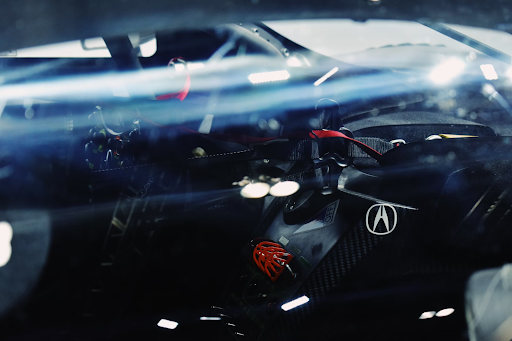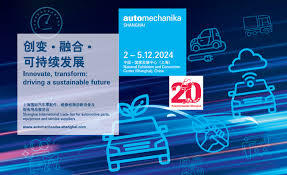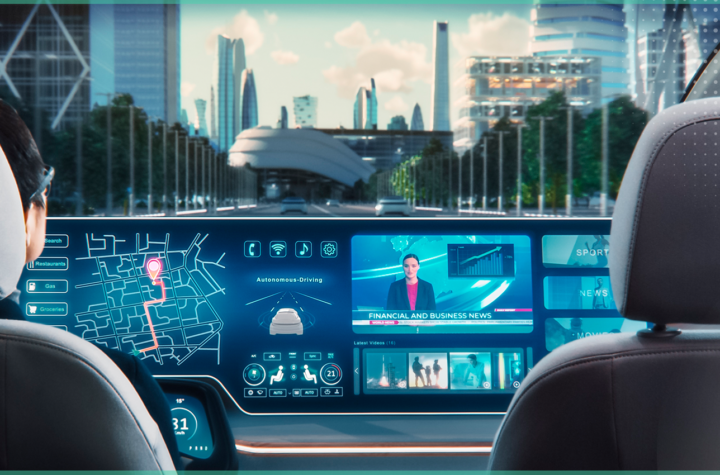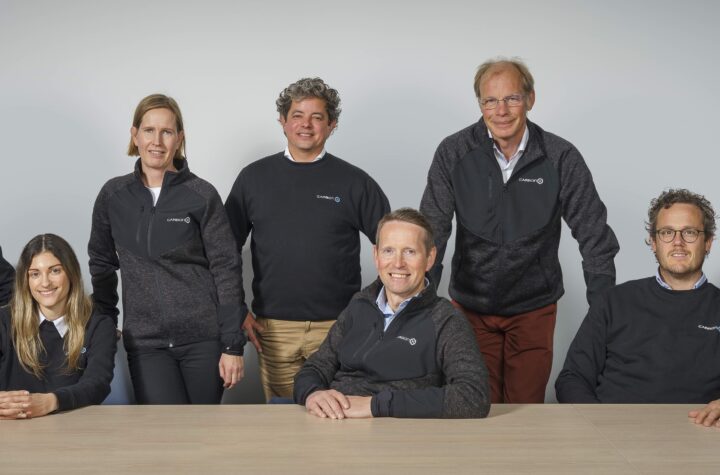
Automechanika Shanghai breaks down China’s 14th Five Year Plan 2021 – 2025 (14th FYP) and what it means to players in the automotive ecosystem. The country’s latest economic and developmental strategy sees the auto industry become a key driver of growth and industrial upgrade. It presents the critical long-term prospects of implementing new business models, sustainable solutions and technological advancements. It also approaches Dual Circulation as a means to tap into domestic demand and export activities. In the year leading up to 24 to 27 November 2021, the internationally-acclaimed fair will explore these new dimensions indicated by the 14th FYP.

Ms Fiona Chiew, Deputy General Manager of Messe Frankfurt (HK) Ltd, believes: “The automotive industry has long been a pillar in the Chinese economy. Now with the 14th FYP guiding transformation in the quickly-rebounding market, it is important that Automechanika Shanghai is there to highlight growing opportunities across the domestic supply chain that benefit both local and international parties.”
The 17th edition will amplify how policies in the macro environment are filtering into the automotive ecosystem. Approximately 3,900 exhibitors in seven sectors and three specialised zones will spread across 280,000 sqm at the National Exhibition and Convention Center, Shanghai.
Highly influential overseas and domestic exhibitors that have confirmed their participation include Amsoil, Autel, Bilstein, BOTNY, Bosch, Brembo, CAMEL, Carzone, COPTON, Doublestar, EAE, Eagle-FLY, FAWER, Hofmann, Homotor, HUITIAN, JINCOOL, MOTUL, Petro-Canada Lubricants, PMC, SAIC MOTOR, STRONA, Total, VIE, WEGMANN, Würth, ZF and Zynp Group, to name a few.
The automotive industry in the 14th FYP
Earlier in the year, China set out its 14th FYP centred on optimising the country’s overall economic system. In accordance with initiatives outlined, the nation’s economy expects to grow an average of four percent during this period[1]. It places more emphasis on innovation, environmental protection, opening up the market and resource sharing. Through this, the country aims to establish a model that delivers more high-quality products, services and technologies to the market.
The automotive industry, therefore, holds significant value in the country’s 14th FYP as its established ecosystem provides a solid foundation for transformation and upgrade. Production in China is already strong with 25.225 million vehicles manufactured last year[2], however, the plan draws attention to transformational initiatives like the Four New Modernisations (electrification, intelligence, connectivity and sharing).
In fact, Automechanika Shanghai actively incorporates this concept in the Tomorrow’s Service & Mobility sector, a critical innovation and incubation hub for new and established companies. It aims to fuel industrial modernisation across the industry, and ultimately, bolster the country’s position as a global manufacturing powerhouse. This includes weaving green transformation, connected mobility, new infrastructure, autonomous driving and other emerging technologies into business operations.
Furthermore, the 14th FYP aims to stimulate new energy vehicle market shares across China to account for 20 percent of sales by 2025. This figure currently stands at 5 percent (as of 2020)[3]. Accordingly, the country will continue to invest in infrastructure like public charging facilities to increase the accessibility and incentivise purchasing.
Elsewhere, as a supporting strategy within the 14th FYP, the Dual Circulation policy opens up wider opportunities in China’s hyper-sized consumer market. It refers to inner circulation (domestic) as the mainstay, with both inner and outer (international) circulations reinforcing one another.
Mr Cheng Yongshun, Vice President of China National Machinery Industry International, said: “The beginning of the 14th FYP signifies a burst of new market development for the years ahead. In parallel, the global automotive industry is also undergoing radical changes. China’s market has sustained steady growth through effective efforts to contain COVID-19 and the Dual Circulation policy will allow players to capture internal and external opportunities across the whole automotive value chain.”

To illustrate, China sold approximately 25.311 million vehicles last year[4]. Moving to the first quarter of 2021, the country imported USD 22.74 billion worth of auto-related products, while exporting a value of USD 24.10 billion at the same time, a year-on-year increase of 35 and 53.1 percent, respectively[5]. This movement of goods is also filtering into wider market segments for logistics, a point that the show heavily covers with over 50 percent of exhibitors offering solutions for commercial vehicles, new energy commercial vehicles, fleet management and associated repair and maintenance.
Thus, Dual Circulation is championing the digitalisation and integration of supporting industries in the automotive supply chain, which is also a key premise of the Services & Supply Chain zone. This includes adapting business models to include heightened collaboration with the likes of research and development, data management, tech, finance and e-commerce to increase operational efficiency and effectiveness.
The fair will reveal more key automotive changes brought forward by the 14th FYP through product showcases and an extensive array of events through its fringe programme. Events expected to return and cover the industry’s future direction include the likes of the Tomorrow’s Service & Mobility Summit and Automotive Aftermarket Summit. Many of these will be livestreamed on the show’s hybrid platform, AMS Live. Other features of this online service include virtual booths, one-to-one meetings and business matchmaking that aim to connect remote overseas players with those at the fairground.
The show is organised by Messe Frankfurt (Shanghai) Co Ltd and the China National Machinery Industry International Co Ltd (Sinomachint). In light of the COVID-19 outbreak, organisers of Automechanika Shanghai will continue to ensure appropriate measures are in place to safeguard the health and safety of all stakeholders at the show.
Background information on Messe Frankfurt
Messe Frankfurt is the world’s largest trade fair, congress and event organiser with its own exhibition grounds. The Messe Frankfurt Group employs around 2,500* people in a total of 30 subsidiaries. The company generated annual sales of approximately €250* million in 2020 after having recorded sales of €738 million the previous year. Even in difficult times caused by the coronavirus pandemic, we are globally networked with our industry sectors. We have close ties with our industry sectors and serve our customers’ business interests efficiently within the framework of our Fairs & Events, Locations and Services business fields. One of the Group’s key USPs is its closely knit global sales network, which extends throughout the world. Our comprehensive range of services – both onsite and online – ensures that customers worldwide enjoy consistently high quality and flexibility when planning, organising and running their events. We are expanding our digital expertise with new business models. The wide range of services includes renting exhibition grounds, trade fair construction and marketing, personnel and food services. Headquartered in Frankfurt am Main, the company is owned by the City of Frankfurt (60 percent) and the State of Hesse (40 percent).
For more information, please visit our website at: www.messefrankfurt.com
* preliminary figures 2020
Background information on Sinomachint
China National Machinery Industry International Co Ltd. (Sinomachint) is a wholly-owned subsidiary of China National Machinery Industry Corporation (SINOMACH), a large state-owned group. Sinomachint specializes in areas such as international exhibitions, trade and project contracting. International exhibition is a core business for Sinomachint, which are recognized because of many years of exhibition organizing experience and a professional organization team. Sinomachint held exhibitions that combine internationality and locality in over 30 large and medium-sized Chinese cities. The total exhibition area of exhibitions that Sinomachint independently organizes or jointly do with partners each year exceeds 3 million square meters. For more information, please visit the website at: www.sinomachint.com
______________________________
[1] The 14th Five-Year Plan: Sector Impact Outlook, February 2021, KPMG, https://qr.messefrankfurt.com/
[2] Automotive Industry Operational Report 2020, January 2021, China Association of Automobile Manufacturers (CAAM), https://qr.messefrankfurt.com/
[3] New energy vehicles to make up 20% of China’s new car sales by 2025, November 2020, Reuters, https://reut.rs/2RvOOj5 (Retrieved May 2021)
[4] Brief analysis of the economic operation of the auto industry in 2020, January 2021, China Association of Automobile Manufacturers (CAAM) https://qr.messefrankfurt.com/
[5] January to March: the import and export value of China’s car merchandise, April 2021, China Association of Automobile Manufacturers (CAAM), https://qr.messefrankfurt.com/






More Stories
The Ultimate Guide to the Best Crossover SUVs: Features and Benefits
The 20th anniversary of Automechanika Shanghai closes with record-breaking exhibitor and visitor participation
Intellias partners with 3SS to Showcase Multimedia Integration Capabilities in Automotive HMI Systems